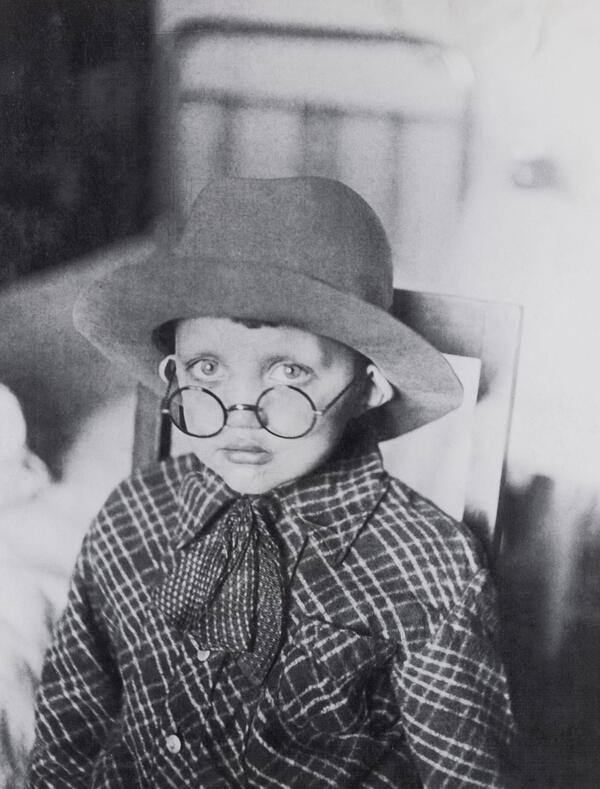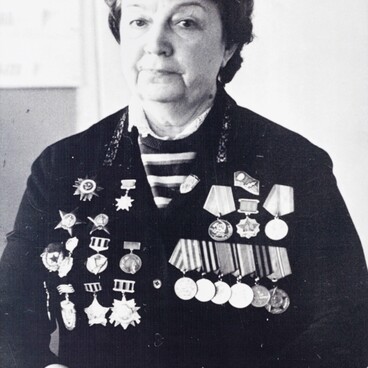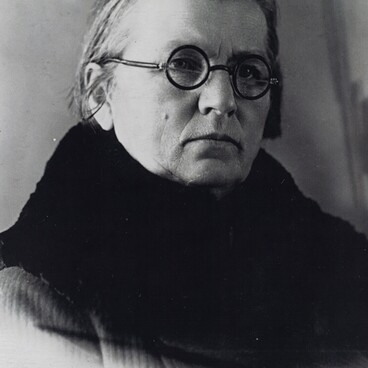The photo shows the future when he was only four years old. At that time, he bore the surname of his father, Stanislav Petkevich, a junior lieutenant of the State Security Service. Since 1934 the family lived in Omsk, where his father was transferred to serve as a military police officer.
At the age of 4, Robert Rozhdestvensky had already started composing poems, and at the age of 5 — started writing them down and learnt to write in block letters on his own from reading newspapers. The boy went to kindergarten at the Omsk Medical Institute, where he gladly read his poems at matinees and together with his mother often went to the library.
Vera Pavlovna Rozhdestvenskaya recalled about the poet’s childhood: “At the age of 3, I sent Robert to the kindergarten at the Omsk Medical Institute. He liked the kindergarten very much, he started communicating with the children in his group very quickly, he was very active and organized the children to play games. He was happy with the kindergarten, which he enjoyed going to. The head of the kindergarten loved him as well; she said he was like a son to her, so obedient, smart, and reliable. He is simply unusual, always together, reads many books, and writes poems. He is a bright boy. I love him very much. Who will he become? I don’t know. That’s what she said about Robert when I took him to go to the first grade. I thanked the headmistress for such kind words and walked and repeated her words — 'a bright boy, a bright boy'.
I thought that we should pay more attention to him so that his bright head would fill with a great desire for knowledge and so that he would become a well-rounded boy. Dreams, dreams, but there was already the war on our doorsteps — the bloody and cruel war… Even before school, he filled his entire notebook with his poems, but during the war, it was lost. I memorized the last lines from the poem he dedicated to the kindergarten:
At the age of 4, Robert Rozhdestvensky had already started composing poems, and at the age of 5 — started writing them down and learnt to write in block letters on his own from reading newspapers. The boy went to kindergarten at the Omsk Medical Institute, where he gladly read his poems at matinees and together with his mother often went to the library.
Vera Pavlovna Rozhdestvenskaya recalled about the poet’s childhood: “At the age of 3, I sent Robert to the kindergarten at the Omsk Medical Institute. He liked the kindergarten very much, he started communicating with the children in his group very quickly, he was very active and organized the children to play games. He was happy with the kindergarten, which he enjoyed going to. The head of the kindergarten loved him as well; she said he was like a son to her, so obedient, smart, and reliable. He is simply unusual, always together, reads many books, and writes poems. He is a bright boy. I love him very much. Who will he become? I don’t know. That’s what she said about Robert when I took him to go to the first grade. I thanked the headmistress for such kind words and walked and repeated her words — 'a bright boy, a bright boy'.
I thought that we should pay more attention to him so that his bright head would fill with a great desire for knowledge and so that he would become a well-rounded boy. Dreams, dreams, but there was already the war on our doorsteps — the bloody and cruel war… Even before school, he filled his entire notebook with his poems, but during the war, it was lost. I memorized the last lines from the poem he dedicated to the kindergarten:



